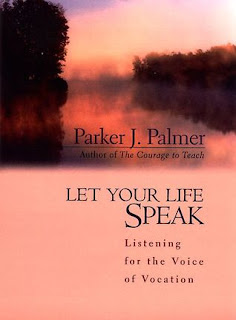 "Poustinia" by Catherine Doherty
"Poustinia" by Catherine DohertyGrade: 3 1/2 stars
I love the idea of Poustinia--it's epic. And some of Catherine's ideas are just so true and beautiful, and not something you see talked about anywhere else (at least in our culture). But I struggled a lot with her style, especially her seeming anti-intellectualism. This was a very up-and-down reading experience for me because of that. But I recommend this heartily! I think almost anyone could get something new and helpful out of it, at least.
 "The Power and the Glory" by Graham Greene
"The Power and the Glory" by Graham GreeneGrade: 5 stars
SO Catholic, in the best possible sense of that phrase. Greene gets so many things--what real sanctity is, the silliness that is sin, and how people think deep down to themselves. He reminds me of a grittier version of C. S. Lewis in those ways. This is a book worth a good, long sit-down discussion over beer or hot chocolate. Yet all this might give the impression that it's a "difficult" book, or preachy, or only relate-able to Catholics or something, but that's totally false. It's easy to read, excellently written, brilliant characters, gets to the bottom of LIFE. Man, I don't even know how to describe my thoughts properly, but I am so glad I finally got around to reading this.
 "In the Night Garden" by Catherynne M. Valente
"In the Night Garden" by Catherynne M. ValenteGrade: 4 stars
The structure of this book! It totally thrilled me. A layered, interlocking series of tales and stories, with unexpected connections and call-backs and Inception-like depth. The unending nature of the structure was a little annoying for me personally, though. I wanted everything wrapped up in the end, in an incredibly complex bundle of imagination and creativity. Instead it emphasizes the fact that stories don't really have a beginning and end, which is probably actually the best route to take, despite my personal preferences.
 "The Return of the Prodigal Son" by Henri Nouwen
"The Return of the Prodigal Son" by Henri NouwenGrade: 4 stars
A beautiful little book that gives you a new appreciation for Rembrandt's famous painting. I didn't find it quite as helpful as the last Nouwen I read, but excellent none the less.
 "Shirt of Flame" by Heather King
"Shirt of Flame" by Heather KingGrade: 5 stars
Profound and difficult and consoling simultaneously. It came at an absolutely perfect time in my life, and gave me a relationship to St. Therese for which I'll be forever grateful. Also good coming so soon after The Power and the Glory, since King also get the grittiness and paradox and beauty of Catholicism.
 "Paladin of Souls" by Lois McMaster Bujold
"Paladin of Souls" by Lois McMaster BujoldGrade: 3 stars
The gods in this series! With the religion in this series, and how Bujold presents the theist character of Cordelia in the Vorkosigan saga, I can't help but think she's had some experience of Faith. She just seems to get how it works (though the Bastard weirded me out a bit...). The rest of the aspects of this story were good enough, and entertaining, but I think the first book, The Curse of Chalion, remains my favourite by a large margin.
(There are some personal notes below this break. Feel free to skip them; they are pretty unintelligible anyway.)


























